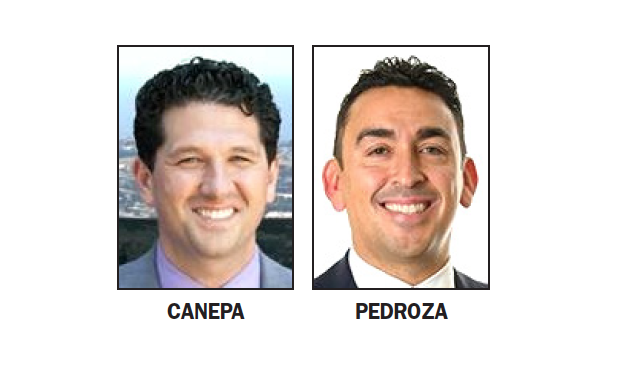
BY ELAINE GOODMAN
Daily Post Correspondent
After placing a $20 billion housing bond on the November 2024 ballot, Bay Area regional planners are now eyeing a public transit funding measure in 2026.
A group called the Transportation Revenue Measure Select Committee is meeting at 9:30 a.m. today (July 29) to talk about a potential transportation ballot measure. The group was formed last month by the Metropolitan Transportation Commission, a transportation planning agency for the nine-county Bay Area.
The select committee’s 18 members include San Mateo County Supervisor David Canepa, Santa Clara County Supervisor Cindy Chavez, and Adina Levin with Seamless Bay Area, a transit advocacy group.
The select committee will meet through October to develop recommendations on the amount of a bond measure, what it should fund and how it would be paid for.
A survey in October 2023 found that 55% of voters would approve a half-cent sales tax for transportation improvements; 51% would approve a 0.17% income tax for that purpose; and 55% would approve a 0.36% payroll tax, according to a presentation for today’s meeting.
The surveyed voters were told the funds would go toward reducing Bay Area traffic and repairing potholes in addition to improving and expanding public transit service.
Voter support for a half-cent sales tax increase dropped by about 4 percentage points – from 63% to 59% – if the measure would only fund transit rather than transit and other transportation improvements, according to a survey in March 2023.
Consultant EMC Research noted in the presentation that despite the support for transit, “Bay Area voters have been in a pessimistic mood, and are sensitive to tax increases.”
A 2026 transit funding measure would be coming on the heels of a $20 billion housing bond measure on the November 2024 ballot that would raise property taxes throughout the Bay Area by about $19 per $100,000 of assessed value. That works out to $190 a year for a home with an assessed value of $1 million. The assessed value of homes is usually lower than their market value.
The housing bond was put on the ballot by the Bay Area Housing Finance Authority, which is a joint effort of the MTC and the Association of Bay Area Governments (ABAG).
In November 2020, voters in San Francisco, San Mateo and Santa Clara counties approved Measure RR, a one-eighth cent sales tax for Caltrain to maintain service.
Still, planners see a need for more transit funding in the Bay Area.
During the select committee’s first meeting, on June 24, members heard about the “fiscal cliff” that transit agencies are facing. Federal funding that shored up transit during the pandemic is ending, and ridership – along with fare revenue – hasn’t rebounded to pre-pandemic levels for many transit operators. In particular, ridership on Caltrain and BART in February, March and April of this year was only about 40% of ridership during the same months of 2019.
Transit operators are projecting a shortfall of $2.7 billion over the next five years.
On top of that, officials would like to see improvements to transit systems, which could add to the funding needs.
“I’m not interested in going back to normal. I’m interested in creating a transit system that’s forward-looking, that’s innovative,” committee member Alfredo Pedroza said during the June 24 meeting. “This is our moment to do things differently.”
Pedroza, a Napa County representative, is also MTC chairman.
A Bay Area transit funding measure can’t move forward unless state lawmakers pass legislation allowing it to be placed on the ballot.
Two Bay Area lawmakers – Sen. Scott Wiener, D-San Francisco, and Sen. Aisha Wahab, D-Hayward – had been working this year on a bill, Senate Bill 1031, to do that. But they announced in May that they were dropping the bill “due to the need for more time to work through various regional differences.”
The select committee’s goal is to write a measure that the state Legislature would support next year. Then the measure could go on the ballot as soon as 2026.

If why do we have to spend more money on CalTrain if they don’t even care whether riders pay or not? I don’t like higher taxes to backfill for money lost on fare evaders.
Why not spend $2Billion like the high-speed rail to nowhere…
I can’t decide whether these out of touch legislators don’t realize the dam’s about to break or they know it’s coming and they’re trying to steal the last five bucks out of your back pocket before it does.
Time for bart to reduce operating costs! Eliminating litely used lines and going to automated trains would do the trick.
Time for people who don’t use or care about public transit to stop commenting.
I don’t use Caltrain or any other public transit, but I pay taxes to subsidize public transit. I deserve a say, since they’re spending my money!